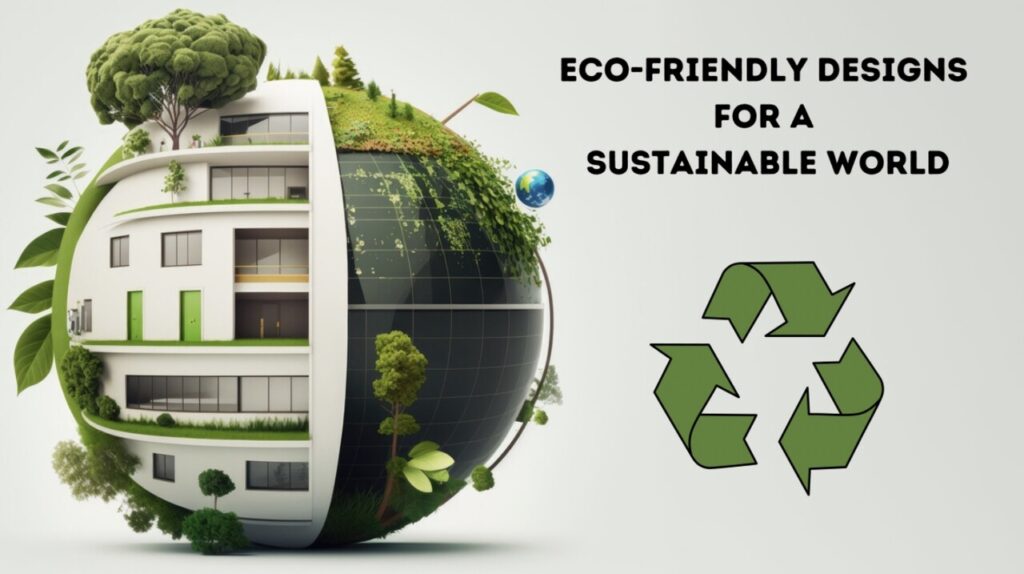As we face growing environmental challenges, the concept of sustainability has moved from a niche concern to a global imperative. The science of sustainability is rooted in understanding how our choices impact the planet and finding ways to minimize harm.
Eco-friendly products play a crucial role in this journey, offering practical solutions to reduce waste, conserve resources, and protect ecosystems. In this blog, we explore the science behind sustainability and why making eco-conscious choices matters more than ever.

What Does “Eco-Friendly” Mean?
At its core, “eco-friendly” refers to practices and products that are designed to cause minimal harm to the environment. These items typically focus on:
- Reducing Waste: Using materials that are biodegradable, recyclable, or reusable.
- Lowering Carbon Footprint: Minimizing greenhouse gas emissions during production, use, and disposal.
- Conserving Resources: Avoiding over-extraction of finite resources like fossil fuels, fresh water, and rare minerals.
- Protecting Ecosystems: Ensuring that production processes do not harm wildlife or disrupt natural habitats.
The principles of eco-friendliness are tied to the broader goals of sustainability, which emphasize meeting the needs of the present without compromising the ability of future generations to meet their own needs.

The Environmental Impact of Conventional Products
Traditional manufacturing and consumer habits have had a devastating impact on the environment. Consider the following:
- Plastic Pollution: Over 300 million tons of plastic are produced globally every year, with a significant portion ending up in oceans and landfills. Single-use plastics, like bags and straws, take hundreds of years to degrade, releasing harmful microplastics into the environment.
- Greenhouse Gas Emissions: The production of non-sustainable goods often relies on fossil fuels, contributing to the rising levels of carbon dioxide (CO2) in the atmosphere. This accelerates climate change, leading to extreme weather events and rising sea levels.
- Deforestation: Many conventional products rely on unsustainable harvesting of resources, such as timber and palm oil, resulting in deforestation. This destroys habitats, reduces biodiversity, and contributes to CO2 emissions.
- Chemical Pollution: Many products use toxic chemicals during production, which can leach into soil and water, harming ecosystems and human health.
These challenges highlight the urgent need for alternatives that prioritize environmental well-being.

How Eco-Friendly Products Make a Difference
Eco-friendly products are designed to counteract these challenges. Here’s how they contribute to a healthier planet:
- Reducing Waste-Eco-friendly items often use materials that are biodegradable or recyclable. For example, bamboo toothbrushes decompose naturally, unlike plastic ones that persist for centuries. Similarly, reusable shopping bags and water bottles reduce reliance on single-use plastics, significantly cutting down on waste.
- Lowering Carbon Footprint-Sustainable products are often produced using renewable energy sources, such as solar or wind power, which emit far fewer greenhouse gases compared to fossil fuels. Additionally, many eco-friendly products prioritize local sourcing, reducing the emissions associated with transportation.
- Conserving Resources-By using recycled or renewable materials, eco-friendly products help conserve finite natural resources. For instance, recycled paper saves trees, water, and energy compared to producing new paper from virgin wood pulp.
- Protecting Ecosystems-Eco-friendly production processes are designed to minimize harm to ecosystems. For example, organic farming practices avoid harmful pesticides and fertilizers, protecting soil health and water quality.

The Science Behind Eco-Friendly Innovations
The development of sustainable products is grounded in cutting-edge scientific research. Let’s explore some key innovations:
- Biodegradable Materials– Scientists are creating alternatives to conventional plastics using natural materials like cornstarch, algae, and even mushrooms. These biodegradable materials break down naturally in the environment, leaving no toxic residues.
- Renewable Energy in Production– Manufacturing processes powered by solar, wind, or hydroelectric energy significantly reduce carbon emissions. For example, factories producing solar-powered gadgets or LED lighting systems operate with a smaller carbon footprint.
- Circular Economy Models– A circular economy aims to eliminate waste by designing products for reuse and recycling. For example, some companies are producing shoes and clothing made entirely from recycled materials, creating a closed-loop system that minimizes resource extraction.
- Carbon-Neutral Products– Carbon-neutral products offset their emissions by investing in renewable energy projects or reforestation initiatives. This means the net carbon footprint of the product’s lifecycle is zero, helping combat climate change.

Why Every Choice Matters
It’s easy to feel that individual actions are insignificant in the face of global environmental challenges. However, collective small changes can create a massive impact. Consider these examples:
- If every household replaced one plastic item with a sustainable alternative, the cumulative reduction in waste would be staggering.
- Supporting eco-friendly brands like Eartha Essentials sends a powerful message to industries, encouraging them to prioritize sustainability.
- Teaching future generations about the importance of eco-friendly living ensures that sustainable practices are carried forward.
Every choice—whether it’s swapping plastic bags for cloth ones or choosing biodegradable dishware—adds up to significant environmental benefits.

How Eartha Essentials Contributes to Sustainability
At Eartha Essentials, sustainability is more than a buzzword—it’s our guiding principle. Here’s how we’re making a difference:
- Eco-Friendly Products: Our range of biodegradable, reusable, and non-toxic items helps reduce environmental harm.
- Sustainable Packaging: We use minimal and recyclable packaging to cut down on waste.
- Education and Advocacy: Through our blogs, social media, and partnerships, we aim to inspire others to adopt sustainable practices
- .Commitment to Innovation: We continuously research and adopt the latest eco-friendly technologies to improve our product offerings.
Conclusion
The science of sustainability underscores the urgent need for eco-friendly solutions in our daily lives. By choosing products that are kind to the planet, we can reduce waste, conserve resources, and protect ecosystems for future generations. At Eartha Essentials, we’re proud to be part of this movement, offering products that empower individuals to make a difference.
Every decision you make today shapes the world of tomorrow. Let’s work together to create a sustainable future—one eco-friendly choice at a time. Explore our collection at Eartha Essentials and join the movement toward a greener, cleaner planet.


